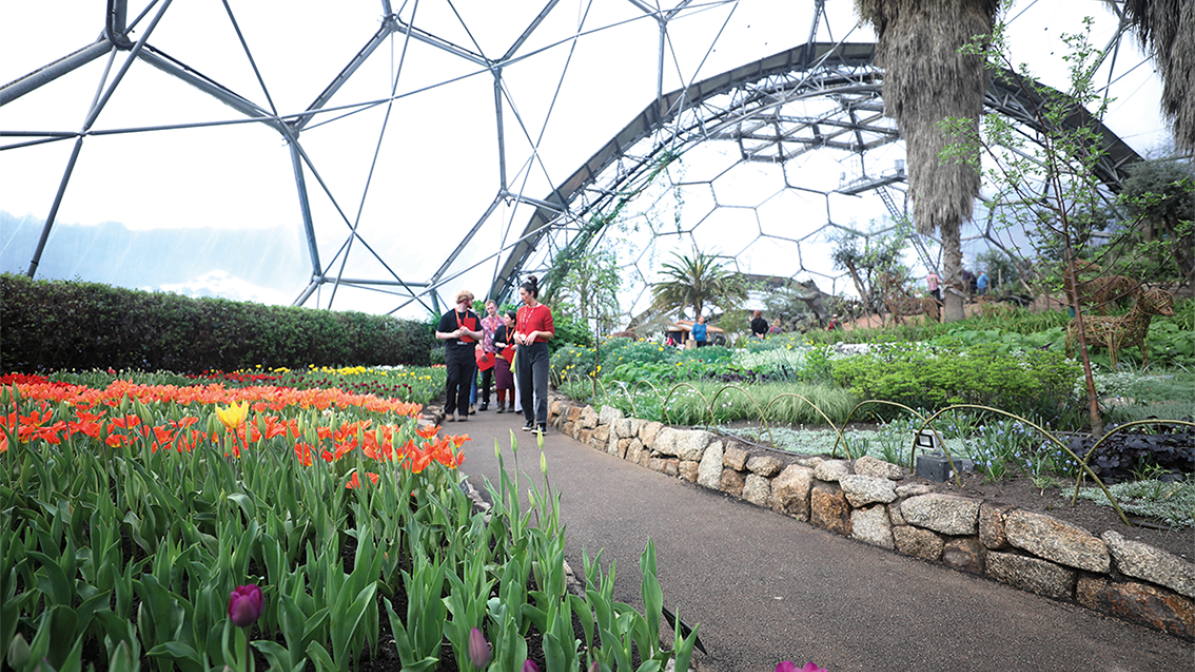Label
Why environmental and earth sciences?
The impact you could make
- Help find solutions to tackle climate change
- Explore renewable energy sources to reduce reliance on the earth's natural resources
- Play a part in local, national and global research and consultancy on environmental issues
What you could study
- Geophysics
- Oceanography
- Geology
- Volcanology
- Geohazards
- Climatology
- Ecology and conservation
Study options
Options to study in this field include:
Example modules and projects
Example module
"My favourite module was forest ecology and management, where we learned to identify the UK’s most common trees and also learned the lifecycle of a tree."
Second year student at University of Nottingham
Example project
"My favourite project was a systematic literature review on the survivability of bacteria in outer space."
Second year student at Brunel University London
Start your search now
Get your UCAS Hub
Your place to discover your options and research your future.
Sign up today Subjects it's useful to have studied first
Physics
Geography
Biology
Chemistry
Maths
Computing
Label
Skills you'll learn
Hard skills you'll develop
- Geographical data analysis
- Field-work research
- Lab data evaluation and reporting
- Environmental compliance knowledge
Soft skills you'll develop
- Communication and teamwork
- Problem-solving
- Project management
- Writing and presentation skills
Careers: Where can it take you?
Find out more about your career prospects from studying environmental and earth science.
The following information is based on a typical environment professional role. Data powered by Lightcast.
Available jobs
37,283 vacancies in the past year
2.83% growth over next 8 years
Average salary
£35,628
Up to £58,000
Career options
Conservation
Agriculture and the environment
Energy services
Research and engineering

What is an... environmental horticulturalist?
You may never have heard of environmental horticulturists, but the work they do is key in supporting net-zero ambitions, whilst preserving and improving wildlife habitats and ecological systems. Ideal for those that are green-fingered and want to make a difference to the environment through tackling bio-diversity, improving air pollution, and helping towards mitigating climate change effects, environmental horticulturists are changing the world, one plant at a time.
Find your ideal career
Take our careers quiz to find your ideal job matched to your personality type. Getting in: Entry requirements
Average requirements for undergraduate degrees
Entry requirements differ between university and course, but this should give you a guide to what is usually expected from environmental and earth sciences applicants.
Uni entry requirements
A Levels
ABB
Scottish Highers
AAAAB
Vocational
BTEC: DDD
Other Level 3/Level 6 qualifications (e.g. Pearson BTEC Level 3 National Extended Diploma in Computing, SVQ IT Professionals - SQCF Level 6) may be accepted as an alternative to A Levels/Highers.

Agriculture, environmental, and animal care apprenticeships
Check out our industry guide to help you decide if an apprenticeship might be the right choice for you."Environmental Science is based on the idea of 'interconnectedness' and systems thinking. We cannot hope to improve the environment if we do not combine talent and expertise from across all fields of science."
Other subjects you may be interested in
Start your search now
Get your UCAS Hub
Your place to discover your options and research your future.
Sign up today Considering an apprenticeship?
Paragraph Timeline
-
1
Deadline
Apprenticeships don't follow the same deadlines as applying to uni, the deadline is down to the employer. -
2
Where to apply
You apply directly through the employer. -
3
No limits!
You're not restricted to one apprenticeship application; you can do as many as you like. -
4
Apply to university and apprenticeships
There's nothing stopping you applying to university through UCAS, while also applying for apprenticeship vacancies. -
5
Find out more
Let's talk about... science apprenticeships (Sponsored by Manchester Metropolitan University)

Apprenticeship vacancies
Check out live apprenticeship vacancies in environmental and earth sciences. Explore further
Paragraph Timeline
-
1
BBC Earth Podcast
The BBC Earth Podcast features fascinating and funny stories from around the natural world, told by global speakers, experts and campaigners.
-
2
TED Talks - Earth, Appreciated
Watch this inspirational playlist of TED Talks, featuring experts across sustainability, climate change, resources and the interaction between humans and our habitat. -
3
Keep up to date with the latest news
You'll find all the latest news and research on the government's Environment Agency website.
Chat to a current environmental and earth sciences student
Chat to a current environmental and earth sciences student using UniBuddy.
Some conversation starters for you:- Ask which modules they really enjoyed.
- Find out how easy it was for them to make friends on their course.
- Do they have any tips on your personal statement?
- Did they do anything to prep for uni before they went?
- Are there books, podcasts or YouTube channels they would recommend?

Want to find out what studying environmental and earth sciences is like?
Chat now to current students who can tell you all about it.77% of students
are highly likely to recommend environmental and earth sciences to others
Application advice
Label
Skills and experience
Skills, experiences and interests to mention
- Do you enjoy practical work and being outdoors? Maybe you did Duke of Edinburgh, or you like hiking at the weekends.
- Have you got experience in lab work and experiments, perhaps at your school or college in science lessons?
- Do you have a passion for the environment and can you give any examples, like recycling, sustainable travel and eating habits?
- Have you got experience in research projects, teamwork and time management? This could be in school group projects, or in a part-time job.
- Do you like maths, problem-solving and looking at the big picture? You'd need to be able to confidently talk about the impact this sort of subject could have and why this would appeal to you.
